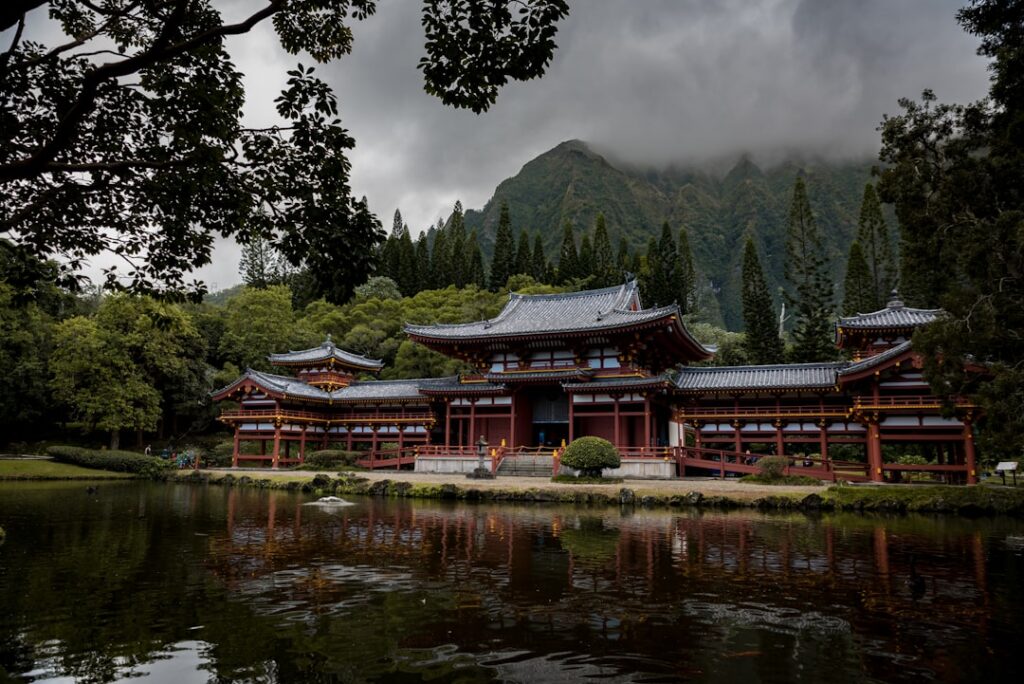Curious about a transformative journey that connects you to both the ancient traditions and serene landscapes of Japan? Rural temple stays—or shukubo—are blossoming as one of Japan’s most enriching travel trends in 2025. Melding mindfulness, immersive culture, and authentic community interaction, these temple retreats invite visitors far beyond the well-trodden tourist hubs. Escape the city, slow down your pace, and discover the soulful rhythms of Japan’s countryside where old customs thrive and new experiences await.
Tradition Meets Today: The Unique Appeal of Shukubo Experiences
The Japanese concept of shukubo—temple lodging—dates back centuries, offering shelter to pilgrims and travelers seeking spiritual growth. In today’s fast-evolving Japanese countryside, shukubo is being reimagined for a new generation of explorers. These temple stays fuse timeless rituals with modern amenities, appealing to solo wanderers, wellness seekers, and deep-culture enthusiasts alike.
What makes the rural temple stay so compelling? It is the seamless blend of tradition and contemporary comfort, nestled in landscapes far removed from urban rush. Visitors can participate in time-honored practices while enjoying tranquil accommodations—often in beautiful wooden halls or tatami rooms overlooking serene gardens. This slow tourism not only supports rural communities, but also ignites a deeper connection with the spirit of Japan.
Experiencing Temple Life: What Awaits at Mount Koya and Regional Shukubo
Arguably the spiritual heartland of shukubo, Mount Koya (Koyasan) in Wakayama Prefecture is renowned for its extensive temple lodging network. Here, guests can immerse themselves in the sacred rhythms of monastic life. Days begin with meditation or zazen, followed by participation in sutra copying (shakyo), and savoring shojin ryori—a nourishing Buddhist vegan cuisine prepared with seasonal mountain ingredients.
Elsewhere across Japan—from the misty valleys of Shinshiro in Aichi, to rustic temples tucked amidst the forests of Shikoku and Hokuriku—travelers uncover unique spiritual and cultural offerings. Engage in calligraphy workshops, take part in fire ceremonies, or join evening chanting illuminated by lanterns. No matter where, temple stays offer an intimate gateway into the heart of Japanese spirituality and everyday temple routines.
Connecting with Monks and Locals: Mindfulness and Community in Action
Temple retreats are not just about personal reflection—they’re a chance to connect mindfully with the people who have kept these traditions alive. Many shukubo offer interactive activities guided by resident monks, from forest walks to mindfulness workshops and tea ceremonies. These genuine encounters can transform a brief stay into an unforgettable cultural exchange.
Some rural temples further encourage travelers to join in local community events, such as harvest festivals or daily chores like garden upkeep. These joint experiences foster mutual understanding—helping visitors unwind, connect to nature, and gain insight into the unique social fabric of rural Japan. For many, this community aspect is just as meditative as any ritual within the temple walls.
Temple Stays and Regional Revitalization: Sustaining Culture and Local Economies
Embracing temple stays doesn’t just benefit travelers—it plays a key role in supporting regional Japan. As more visitors seek slow, meaningful escapes, the economic impact has helped revive small communities and preserve local heritage. Many temple lodgings are now collaborating with town artisans, farmers, and guides to offer immersive experiences that deepen travelers’ understanding of regional culture.
This sustainable tourism favors the long-term health of both environment and tradition. By staying at a rural temple, guests contribute directly to cultural preservation and the livelihoods of local families. The result is a vibrant, mutually rewarding cycle—where tourism uplifts communities, and guests are enriched by genuine, transformative journeys.
Why Choose a Temple Retreat? Rejuvenate in Japan’s Heartland
Amid the rush of modern travel, a rural Japanese temple stay offers a rare sanctuary for mind and body. Whether you’re seeking spiritual grounding, a digital detox, or a truly local adventure, these immersive escapes balance comfort with authenticity and open the door to timeless Japanese wisdom. Take time to rediscover serenity; let yourself be enveloped by incense-scented air, peaceful gardens, and the gentle hospitality of Japan’s countryside.
If you wish to experience Japan at its most soulful, while supporting the communities who sustain its heritage, a temple retreat may be the highlight of your journey. Step beyond Zen—and step into the heart of rural Japan, where your adventure awaits.








